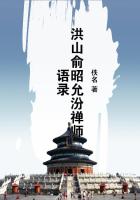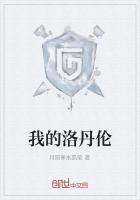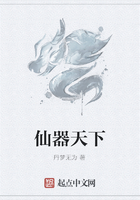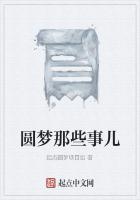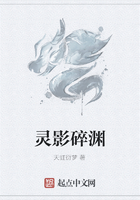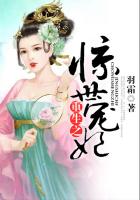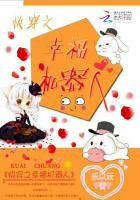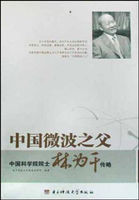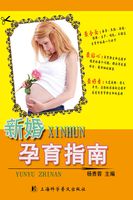The plot! A good plot is that sure edifice which slowly rises out of the interplay of circumstance on temperament, and temperament on circumstance, within the enclosing atmosphere of an idea. A human being is the best plot there is; it may be impossible to see why be is a good plot, because the idea within which he was brought forth cannot be fully grasped; but it is plain that he is a good plot. He is organic. And so it must be with a good play. Reason alone produces no good plots; they come by original sin, sure conception, and instinctive after-power of selecting what benefits the germ. A bad plot, on the other hand, is simply a row of stakes, with a character impaled on each--characters who would have liked to live, but came to untimely grief; who started bravely, but fell on these stakes, placed beforehand in a row, and were transfixed one by one, while their ghosts stride on, squeaking and gibbering, through the play. Whether these stakes are made of facts or of ideas, according to the nature of the dramatist who planted them, their effect on the unfortunate characters is the same; the creatures were begotten to be staked, and staked they are! The demand for a good plot, not unfrequently heard, commonly signifies: "Tickle my sensations by stuffing the play with arbitrary adventures, so that I need not be troubled to take the characters seriously. Set the persons of the play to action, regardless of time, sequence, atmosphere, and probability!"
Now, true dramatic action is what characters do, at once contrary, as it were, to expectation, and yet because they have already done other things. No dramatist should let his audience know what is coming; but neither should he suffer his characters to, act without making his audience feel that those actions are in harmony with temperament, and arise from previous known actions, together with the temperaments and previous known actions of the other characters in the play. The dramatist who hangs his characters to his plot, instead of hanging his plot to his characters, is guilty of cardinal sin.
The dialogue! Good dialogue again is character, marshalled so as continually to stimulate interest or excitement. The reason good dialogue is seldom found in plays is merely that it is hard to write, for it requires not only a knowledge of what interests or excites, but such a feeling for character as brings misery to the dramatist's heart when his creations speak as they should not speak--ashes to his mouth when they say things for the sake of saying them--disgust when they are "smart."
The art of writing true dramatic dialogue is an austere art, denying itself all license, grudging every sentence devoted to the mere machinery of the play, suppressing all jokes and epigrams severed from character, relying for fun and pathos on the fun and tears of life. From start to finish good dialogue is hand-made, like good lace; clear, of fine texture, furthering with each thread the harmony and strength of a design to which all must be subordinated.
But good dialogue is also spiritual action. In so far as the dramatist divorces his dialogue from spiritual action--that is to say, from progress of events, or toward events which are significant of character--he is stultifying the thing done; he may make pleasing disquisitions, he is not making drama. And in so far as he twists character to suit his moral or his plot, he is neglecting a first principle, that truth to Nature which alone invests art with handmade quality.
The dramatist's license, in fact, ends with his design. In conception alone he is free. He may take what character or group of characters he chooses, see them with what eyes, knit them with what idea, within the limits of his temperament; but once taken, seen, and knitted, he is bound to treat them like a gentleman, with the tenderest consideration of their mainsprings. Take care of character; action and dialogue will take care of themselves! The true dramatist gives full rein to his temperament in the scope and nature of his subject; having once selected subject and characters, he is just, gentle, restrained, neither gratifying his lust for praise at the expense of his offspring, nor using them as puppets to flout his audience. Being himself the nature that brought them forth, he guides them in the course predestined at their conception.
So only have they a chance of defying Time, which is always lying in wait to destroy the false, topical, or fashionable, all--in a word--that is not based on the permanent elements of human nature. The perfect dramatist rounds up his characters and facts within the ring-fence of a dominant idea which fulfils the craving of his spirit; having got them there, he suffers them to live their own lives.
Plot, action, character, dialogue! But there is yet another subject for a platitude. Flavour! An impalpable quality, less easily captured than the scent of a flower, the peculiar and most essential attribute of any work of art! It is the thin, poignant spirit which hovers up out of a play, and is as much its differentiating essence as is caffeine of coffee. Flavour, in fine, is the spirit of the dramatist projected into his work in a state of volatility, so that no one can exactly lay hands on it, here, there, or anywhere. This distinctive essence of a play, marking its brand, is the one thing at which the dramatist cannot work, for it is outside his consciousness.
A man may have many moods, he has but one spirit; and this spirit he communicates in some subtle, unconscious way to all his work. It waxes and wanes with the currents of his vitality, but no more alters than a chestnut changes into an oak.




